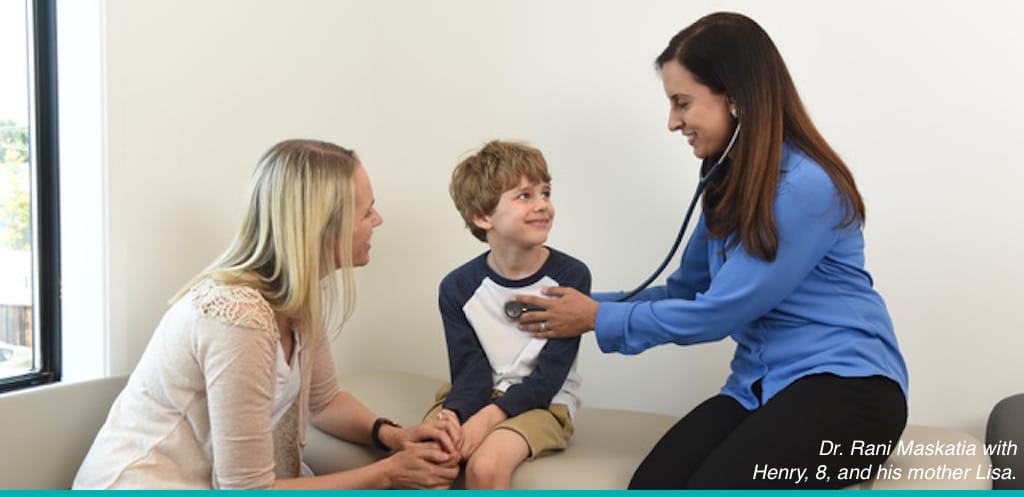
BY KIMBERLEY YATES
IN THE first nine years of her life, my daughter Tessa Grosso experienced three nearly fatal allergic reactions. We were vigilant about her food allergies, but she had so many allergens and was so exquisitely allergic, that life felt like navigating a minefield. Even trace amounts of dairy, eggs, wheat, barley, rye, peanut, tree nuts and shellfish could plunge Tessa into anaphylaxis.
Our family's life became one of fear and anxiety. Even her younger sisters, Reese and Alyssa, stressed daily about keeping Tessa safe, they all faced a tough psychological toll. As with many children who have suffered anaphylaxis, Tessa’s near-fatal reactions brought post-traumatic stress disorder, obsessive compulsive disorder, anxiety and clinical depression.
As her mother, I was no longer willing to accept avoidance as our only option. I searched across the country, finally finding answers in our own backyard when I met Dr. Kari Nadeau in 2009 at California's Stanford University. Together, we sparked the idea of treating Tessa for her multiple severe food allergies simultaneously.
We joined forces to create a community council that raised the resources necessary to launch a world-renowned food allergy research center at Stanford. Ultimately, Tessa became the first patient to be successfully treated for multiple allergens simultaneously in a ground-breaking clinical trial. The trial protocol involved oral immunotherapy (OIT) with the help of Xolair (omalizumab), the anti-IgE antibody drug.
Life "Without Fear of Food"
It has been seven years since Tessa graduated OIT, and the safety and comfort she's known since treatment have had a tremendous impact on her – and our – quality of life. The improvement in her mental health cannot be understated.
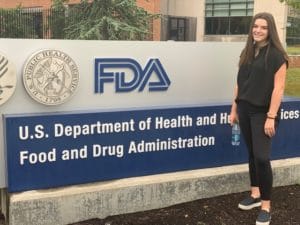
Now 16, Tessa was recently asked to give a statement in front of an FDA advisory committee, representing thousands of patients who have found OIT life-changing. She described her treatment as “the most empowering experience of her life.” Tessa told the FDA panel: “Saving my life, giving me a new life – every child deserves this. Therapy that provides freedom, safety, and the ability to live without the fear of food is a choice that should be available and accessible for every single family,” she said in support of science-based OIT.
Building a New Clinical Model
Tessa's difficult early years with food allergies motivated me to get proactive about finding her treatment. Now her success with OIT has inspired the creation of a new clinical model. It's a model that can accommodate the complex needs of a food-allergic child and their family, while recognizing that food allergy can be life-threatening and deserves specialized patient care. I felt driven to help as many families as possible receive specialty care in food allergies, and led a founding team of other food allergy parents, a nationwide Medical Advisory Board, business advisors, and committed clinicians to create Latitude Food Allergy Care.
Latitude is a clinic 100% focused on food allergy care, providing a personalized and empathetic new approach. We have specialized clinicians who are able to thoroughly answer the complex questions of food allergy families through diagnostic tests, food challenges, treatment and long-term support, as well as early food introduction with infants. An emphasis on a clear, accurate diagnosis prioritizes patient health and minimizes the burden on a family of unnecessary food avoidance or treatment.
Since we opened the doors of the first Latitude clinic in California in 2018, it has been incredibly gratifying to have helped so many food allergy patients and families of all ages.
Individualized Patient Care at Early Age
Rini, a doctor and mother of three, describes why she decided to start oral immunotherapy at Latitude when her youngest, Anjali, was just one year old. "This is the time when their immune systems are most malleable," she notes. Dr. Rani Maskatia, Latitude's full-time allergist, tailored an evidence-based treatment plan specifically for Anjali’s severe allergies to dairy and cashews.
“As a physician, and a mom, I feel so confident and grateful about the individualized patient care at Latitude," says Rini. "I feel much better that Anjali is safer. She can eat something and we’re not worried that she’ll have a reaction." Anjali and her mom also found the clinic space inviting. "Our baby went through treatment at Latitude with joy," says Rini. "She loves the clinic, she toddles around the beautiful community space, pulls out toys, and gives everyone high-fives.”
Now that Anjali is in maintenance after reaching her dosing goal, Rini shares the greatest benefit to being proactive at such a young age, “She’s not anxious and because we haven’t had to go through years of living in fear, I’m not anxious either.”
Eight-year-old patient Henry’s long list of allergens and multiple severe reactions made playdates away from home and eating at restaurants impossible. Latitude was able to work hand-in-hand with Henry’s family to safely introduce oral immunotherapy.
When he reached his maintenance dose nearly a year ago, Henry's life opened up. His mother Lisa shares that over the past year, her son has been able to eat out at restaurants safely, travel, have playdates and trick-or-treat without fear. “It’s an understatement to say that we’re relieved and excited to now take part in normal childhood activities," says Lisa.
She adds that "Latitude continues to be there for us when we run into questions or challenges. We are not alone, the team has been with us every step of our journey.”
Therapy, Then Off to College
With each stage of life, food allergy families are motivated by different things to seek a different level of care. I was motivated by Tessa’s severe reactions. David and his parents turned to Latitude for new answers last spring before he moved across the country to start college.
In just a few months working closely with our clinical team, David was able to successfully reach a level of safety with oral immunotherapy to peanut before his big move in September 2019. “Starting OIT before college was one of the smartest decisions I’ve made. I was worried appointments would be very time-consuming, but it was very manageable," he says.
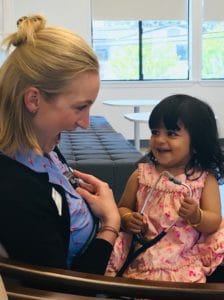
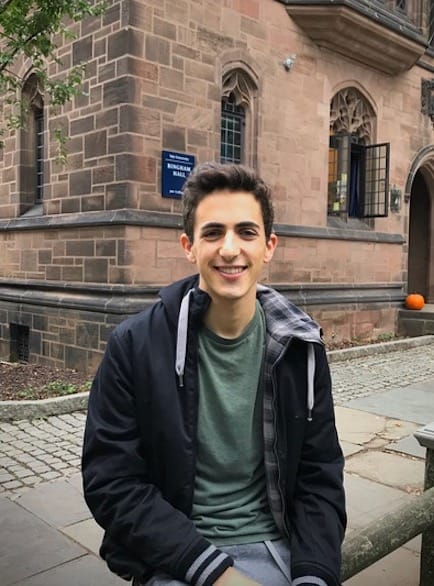
The 18-year-old describes the Latitude team as "like a family, which made appointments a lot of fun. It was a very calming environment – it’s not a high-stress doctor’s office." He says treatment allowed him to start in a new environment at Yale University without stress about eating in an unfamiliar place.
"I can go to the dining hall and not be as concerned about the jar of peanut butter in the corner or cross-contamination from a dirty tray," he says. Plus, "I’ve been able to enjoy camping and other new adventures. And I always appreciate that I have my Latitude family if I run into questions.”
There is no cure for food allergies and there are many unanswered questions about treatments and diagnostics for food allergies. But there is a better way to care for the overall needs of food allergy families – including evidence-based treatments that are proven to be life-changing for thousands of patients like Tessa, Anjali, Henry and David. It has been incredibly rewarding to be able to offer this new level of care to so many families and, together with the Latitude team, I look forward to helping many more food allergy families across the country.
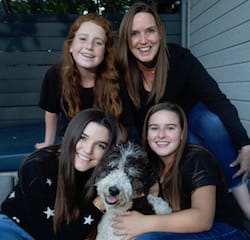
Kimberley Yates is the founder and CEO of Latitude Food Allergy Care. Learn more at Latitudefoodallergycare.com.


